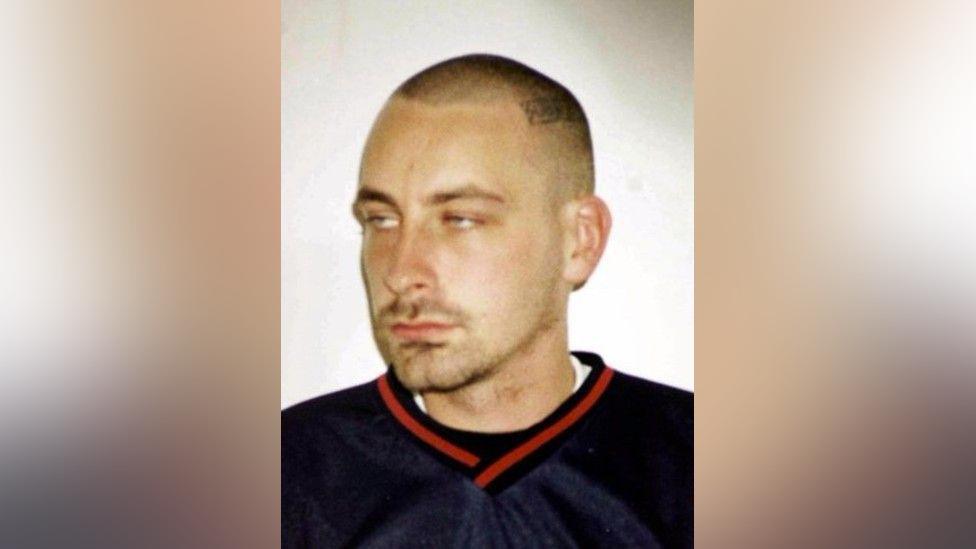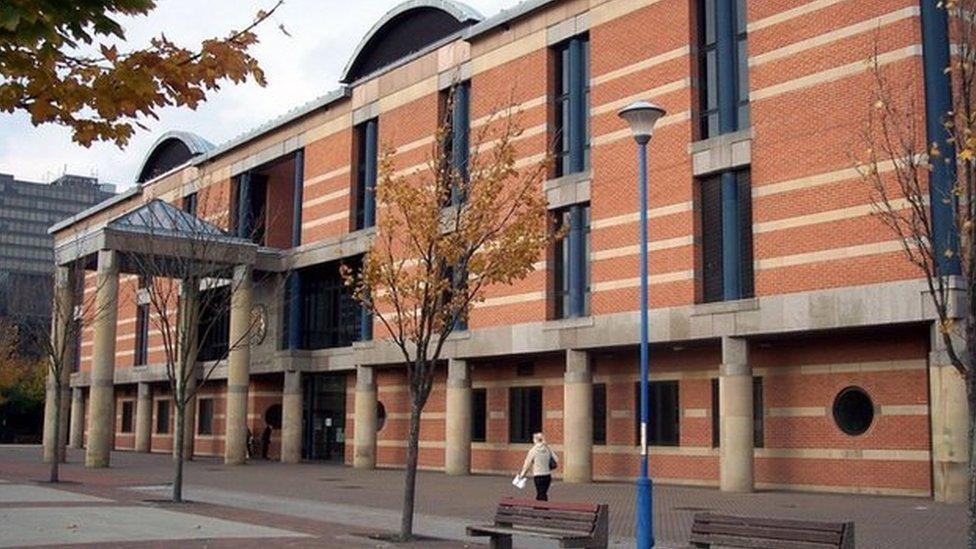Helen's Law: Self-proclaimed cannibal killer David Harker denied parole
- Published

David Harker told psychiatrists he had fried parts of Julie Paterson's body and eaten it with pasta and cheese
A killer who claimed to have eaten parts of his victim has been refused parole under a new law aimed at denying freedom to those who will not reveal the location of a body.
David Harker is serving a life sentence after admitting the manslaughter of Julie Paterson in Darlington in 1998.
Her partial remains were discovered a month after she went missing but the rest of her body has never been found.
Harker is among the first killers to been refused release under Helen's Law.
A murder investigation was launched when parts of Ms Paterson's dismembered body were found in a bin liner, hidden in a garden hedge.
Police believe the 32-year-old mum of four was strangled in Harker's Darlington flat, and although Harker bragged that he had eaten parts of Ms Paterson with a plate of pasta, he never revealed where the rest of her remains were.

Harker admitted manslaughter on the grounds of diminished responsibility at Teesside Crown Court in February 1999
Harker admitted manslaughter on the grounds of diminished responsibility and was jailed for life at Teesside Crown Court in February 1999.
Judge Mr Justice Bennett recommended he serve at least 14 years before parole was considered.
Under Helen's Law, which was enacted in January, it is harder for prisoners who refuse to disclose a body's location to get parole.
The legislation is dubbed Helen's Law after Helen McCourt, whose killer Ian Simms was freed from jail without disclosing the location of her remains.
Her mother Marie McCourt spent five years calling for the legislation before it finally gained Royal Assent in November after a series of political and constitutional setbacks.
Under the law, killers could still be released if no longer deemed a risk to the public even if they refuse to disclose information but the Parole Board will be legally required to consider whether they have co-operated with inquiries as part of their assessment.
The Parole Board confirmed Harker's case had been rejected on Tuesday but is yet to provide any further details on how the decision was reached.
Harker will be eligible for another parole decision in about two years' time.

Follow BBC North East & Cumbria on Twitter, external, Facebook, external and Instagram, external. Send your story ideas to northeastandcumbria@bbc.co.uk, external.
Related topics
- Published3 March 2020

- Published17 May 2019
